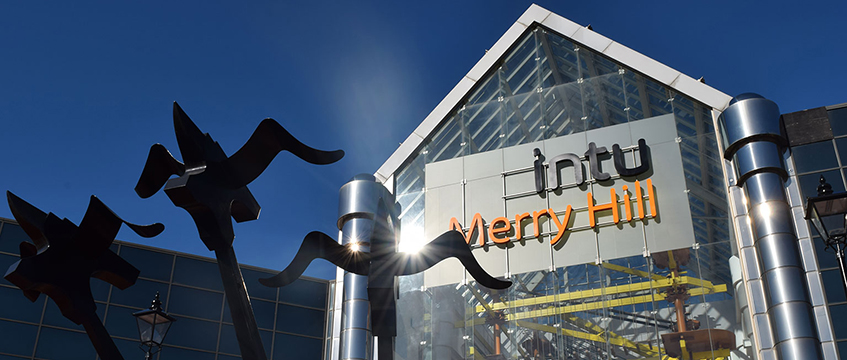Intu to seek partial sales as REIT sizes up equity raise
Intu is planning to sell partial stakes in its wholly owned flagships, including its Trafford Centre in Manchester and Merry Hill complex in Birmingham.
Matthew Roberts, chief executive of intu, has said that over time, the REIT will “look to introduce partners at our flagship centres that we own 100% of”, including the two properties.
“At Trafford, we continue to explore refinancing the expensive legacy debt, which we need to do ahead of a partial sale of the centre,” said Roberts. The Trafford Centre was valued at £1.9bn on 30 June, while Merry Hill was worth £707.9m.
Intu is planning to sell partial stakes in its wholly owned flagships, including its Trafford Centre in Manchester and Merry Hill complex in Birmingham.
Matthew Roberts, chief executive of intu, has said that over time, the REIT will “look to introduce partners at our flagship centres that we own 100% of”, including the two properties.
“At Trafford, we continue to explore refinancing the expensive legacy debt, which we need to do ahead of a partial sale of the centre,” said Roberts. The Trafford Centre was valued at £1.9bn on 30 June, while Merry Hill was worth £707.9m.
Intu is aiming to generate sufficient liquidity to reduce its 2021 debt maturities, with a total of £926m due to be refinanced that year.
The news comes as the landlord candidly outlined its plan to review an equity raise and other “self-help” measures, while rental income continues to dive.
Speaking to EG earlier today, Roberts said: “Our prime aim is to fix the balance sheet in the short term, to create liquidity to deal with our upcoming refinancings.
“In the past few weeks we have taken some costs out of the business. Our centres are well invested so we have cut back our capex.”
In addition to making progress on selling its Spanish assets to reduce debt, intu also plans to generate £30m-40m this year by selling parcels of land near its centres, with buyers including student accommodation and residential players.
Meanwhile, by pausing its dividend payments, Roberts said that intu will make a saving of £100m.
“Ultimately we may have to come back to market to raise equity. I won’t say we are not going to. But there is a lot we can and are doing to generate liquidity before we get to raising equity,” he said.
All in all, Roberts expects that rental income will continue to shrink.
“We would expect values to come under more pressure in the near term,” said Roberts. “Whether that’s the second half of this year or through 2020, we’ll see; but we assume values will continue to decline somewhat from here. [That said] we have some good dynamics going on in the business.”
So far, the landlord has identified opportunities for circa 6,000 residential flats across eight sites, seven potential hotel sites comprising 800 bedrooms, and eight offices.
What the analysts said
While analysts have praised intu’s candour on its issues and observed that it is taking steps in the right direction, some have warned it could be a case of “too little, too late”.
Analysts have also cautioned that an equity raise should move higher up intu’s list of priorities. During the day, the landlord’s share price tumbled by around 30%.
Rob Virdee, research analyst at Green Street Advisors, said: “What intu has outlined makes sense, but it really needs equity capital and to get ahead of valuation declines. The share price tells us that drastic measures are required and I do not think the self-help measures it has outlined are sufficient.
“Rather than limping on, management needs to grasp the nettle and do the equity raise early, not as a last resort.”
Alan Carter, analyst and managing director of real estate sales at Stifel, said: “It’s now like shooting fish in a barrel but at least, at last, management appears to have started to really face up to the company’s issues and has belatedly started to take steps to address them.
“Both revenue account and balance sheet are awful but realistic for the moment, although neither is set to improve, in fact the opposite.
“When a CEO states that [he is] keeping all options under review ‘from self-help measures through to raising equity’, one suspects the game is close to being up.”
James Child, head of retail and industrial research at EG, said: “The steep drop in rental revenues will not only be a worry for intu, but all UK shopping centre landlords. Today’s numbers issue a stark warning to the property industry about the revaluation of retail real estate, and how quickly it’s happening, exacerbated by multiple retailer collapses and CVAs.
“Future success for landlords will need to hinge on investing time and effort away from just shopping destinations, by incorporating more mixed-use and residential elements into their schemes.”
To send feedback, e-mail pui-guan.man@egi.co.uk or tweet @PuiGuanM or @estatesgazette











